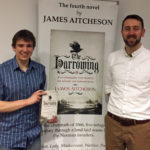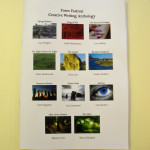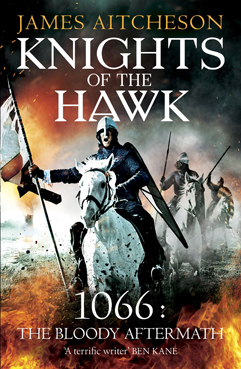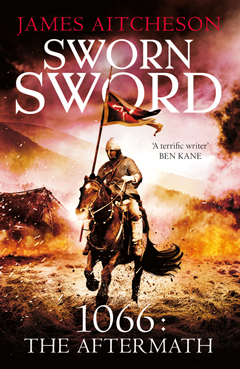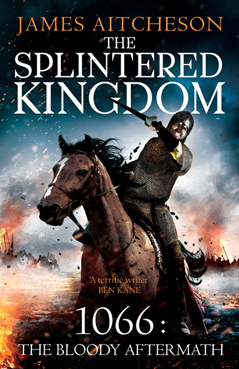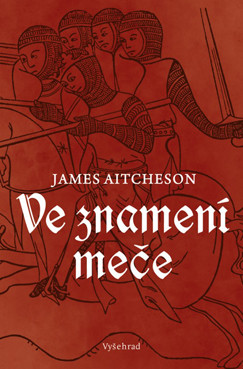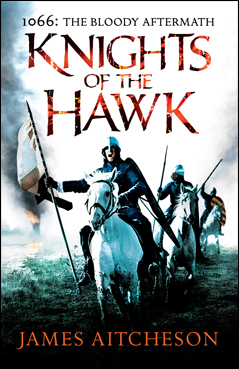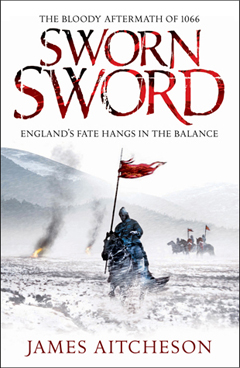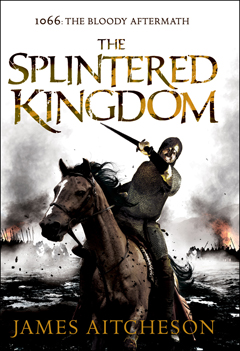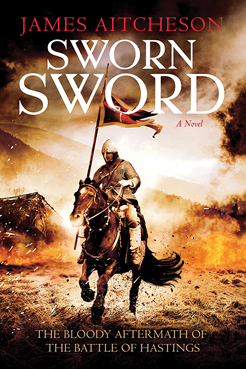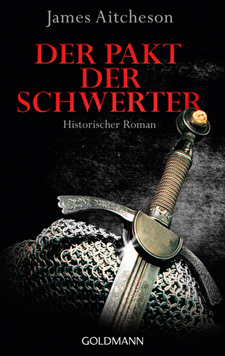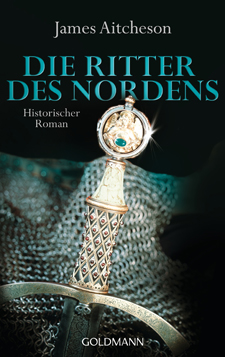As well as visiting bookshops and libraries as part of my book tour, occasionally I’m also invited to speak about my work in universities and schools, and it’s been my pleasure in the last few weeks to present talks and chair workshops at both Swansea University and Huddersfield New College.
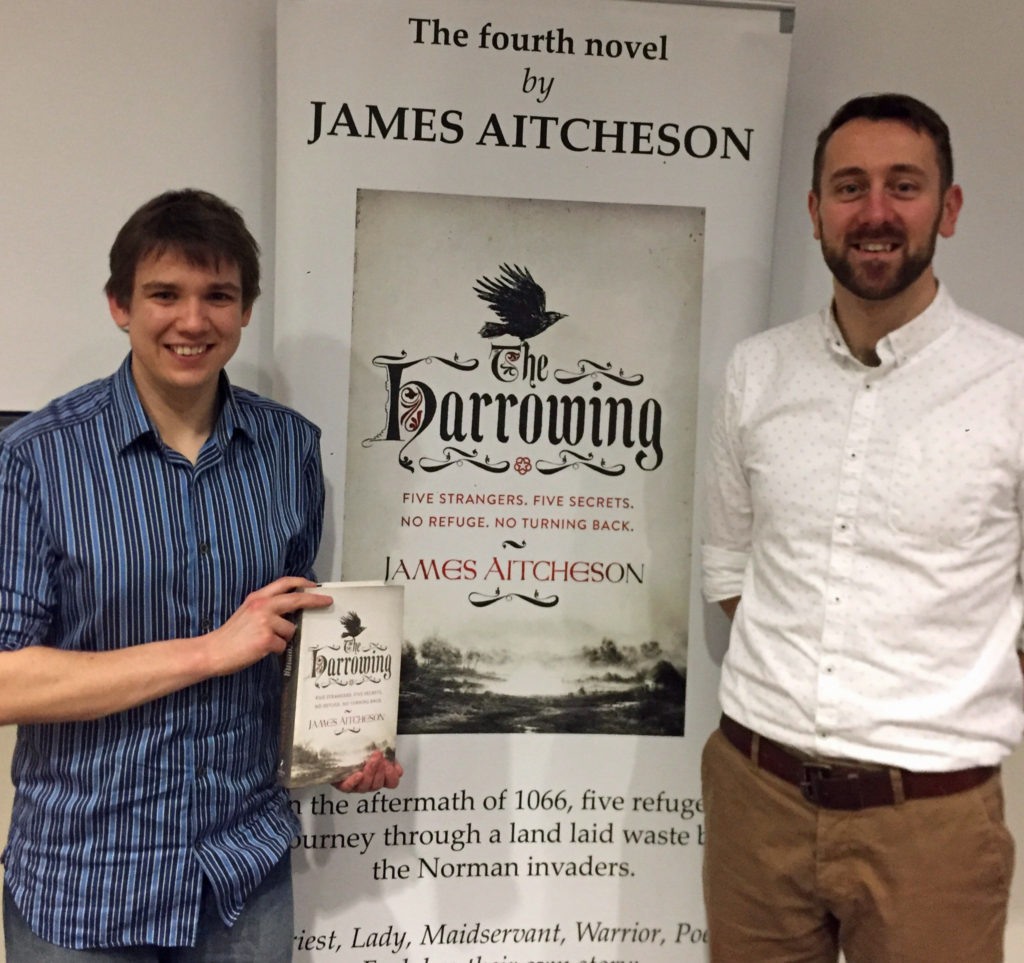
From left to right: myself and Dr Charlie Rozier following my public lecture at Swansea University. Photo credit: Swansea University.
At Swansea I was invited first to co-chair a workshop for medieval history students, looking at primary sources, their value and their limitations. After a short presentation by me, students used extracts relating to the Norman Conquest as inspiration for creative writing – an unusual and in many ways counterintuitive brief to give historians, for whom imaginative interpretation of available evidence doesn’t always come naturally, but an exercise that produced some interesting results.
Later I also gave a public lecture on the process of writing historical fiction, tackling a common question posed by readers, and one that has dominated the debate about the genre for seemingly forever: “Where do you draw the line between fact and fiction?” Drawing upon examples from my own work, I argued that we shouldn’t fixate, as we traditionally have done, on the issue of historical accuracy. Rather, we should celebrate fiction’s potential to understand, interpret and communicate the past in new ways, and I offered some alternative ways of framing the debate regarding the genre.
Both sessions provoked some lively discussion with staff and students, historians and writers alike. I was thrilled to be invited to speak – my thanks to Dr Charlie Rozier (pictured with me, above) for kindly organising the event and making sure the day ran smoothly.
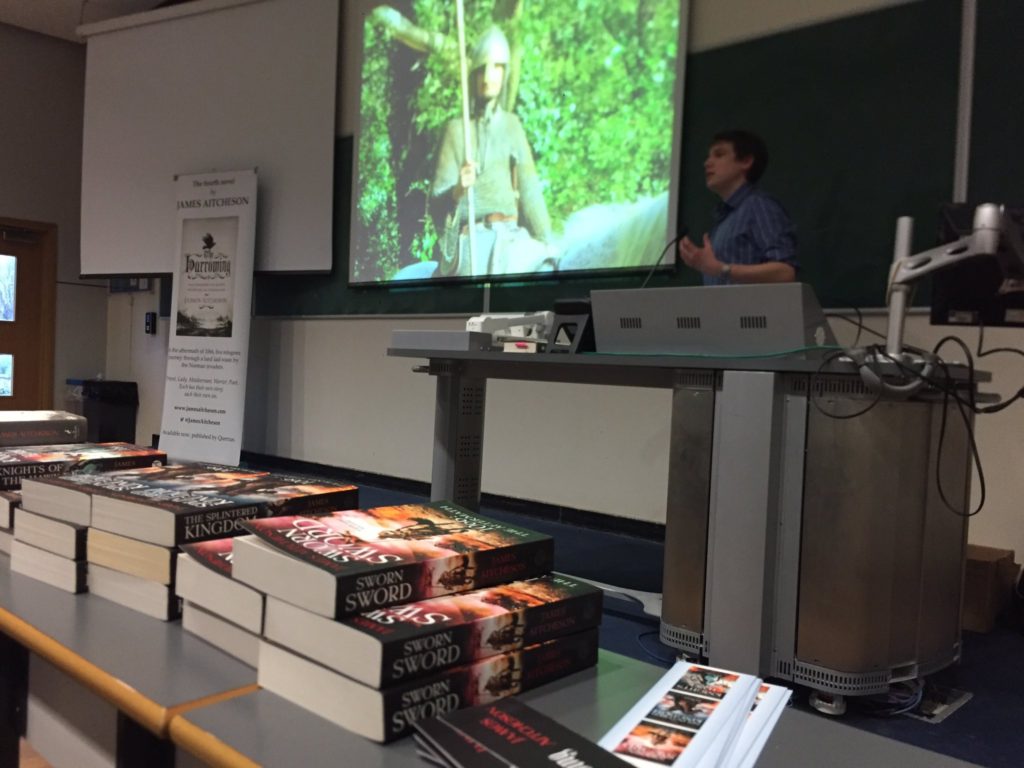
Delivering my public lecture on historical fact and fiction at Swansea University. Photo credit: Charlie Rozier.
The following week I was delighted to return to Huddersfield New College for the third year in a row as their guest author for World Book Day. As well as speaking about the process of researching and writing historical fiction with A-Level medieval and modern history students, I also led a creative workshop based around a series of timed writing challenges designed to free up the imagination and to help writers bypass the internal editor that can sometimes hold them back.
Students were encouraged to write as much or as little as they wanted, without any obligation to share what they’d produced. The challenges varied in difficulty and structuredness, including question-based prompts for generating plots, a picture-based free writing exercise and the ever-popular (and my favourite) “word salad”. I was hugely impressed not just with the energy and enthusiasm the students brought to all of the tasks, but also the range of different responses produced, which often put my own efforts in the shade!
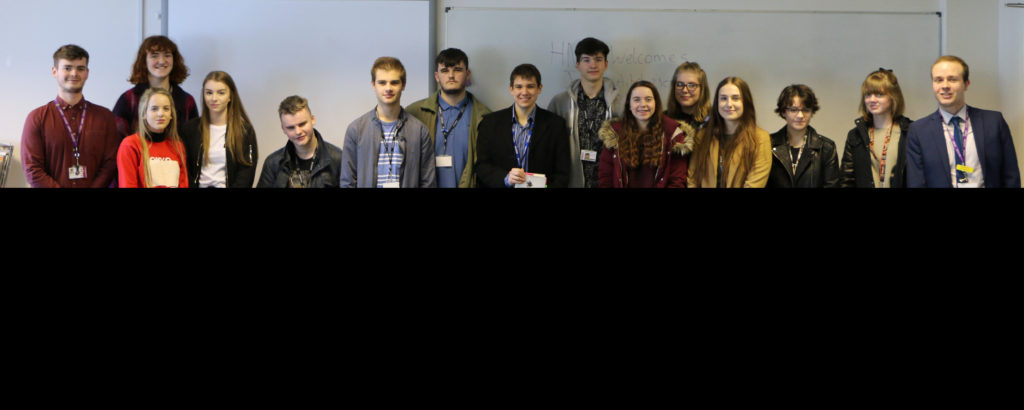
Me (centre, holding The Harrowing) with A-Level students at Huddersfield New College and History course leader Scott Townsend (far right). Photo credit: Huddersfield New College.
Again this year I was given the honour of presenting the certificates at a lunchtime prizegiving ceremony to the winners – chosen by College staff – of the annual short story competition, this year themed upon myths and legends. I also made myself available throughout the afternoon to chat with students about their current writing projects and give advice. It was fantastic to speak to so many keen young writers, and I wish them all the best for their future literary adventures. I’d like to thank Rebecca Hill, the College Librarian, for putting together this year’s event, as well as to Scott Townsend, Sarah Newton and the Principal, Angela Williams, for once more making me feel so welcome.
I’m always happy to visit schools, colleges and universities to speak about my work and to run creative writing sessions. If you’re a teacher, librarian or lecturer and would be interested in hosting a similar event, please do get in touch with me via the Contact page – I’d be glad to discuss some ideas.
Earlier this month I was thrilled to be invited back to Huddersfield New College in West Yorkshire for a second year in a row to give an event as part of their celebrations for World Book Day, which fell this year on Thursday 3 March.
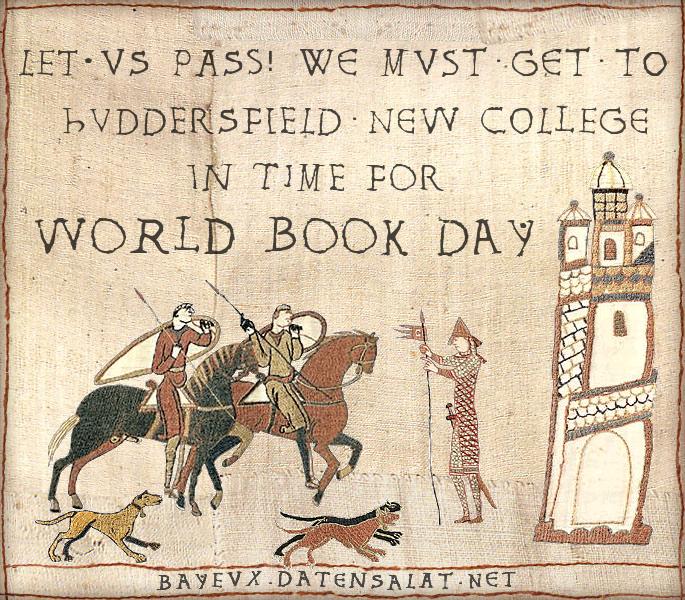
A previously undiscovered section of the Bayeux Tapestry.
As last year, I not only gave a talk to Year 12 and 13 History students about Anglo-Saxon England, but also ran a creative writing workshop for aspiring poets and prose writers, focussing on overcoming the fear of the blank page and on letting the imagination run wild.
The workshop involved a series of short exercises including a 3-minute free writing sprint, and various word- and picture-based challenges, after each of which we shared what we’d written with the rest of the group. It was a huge amount of fun not just for the students but also for me. As always in these sessions, I was massively impressed by the richness and diversity of the writing that emerged, and I hope that the students went away as energised and full of ideas as I did.
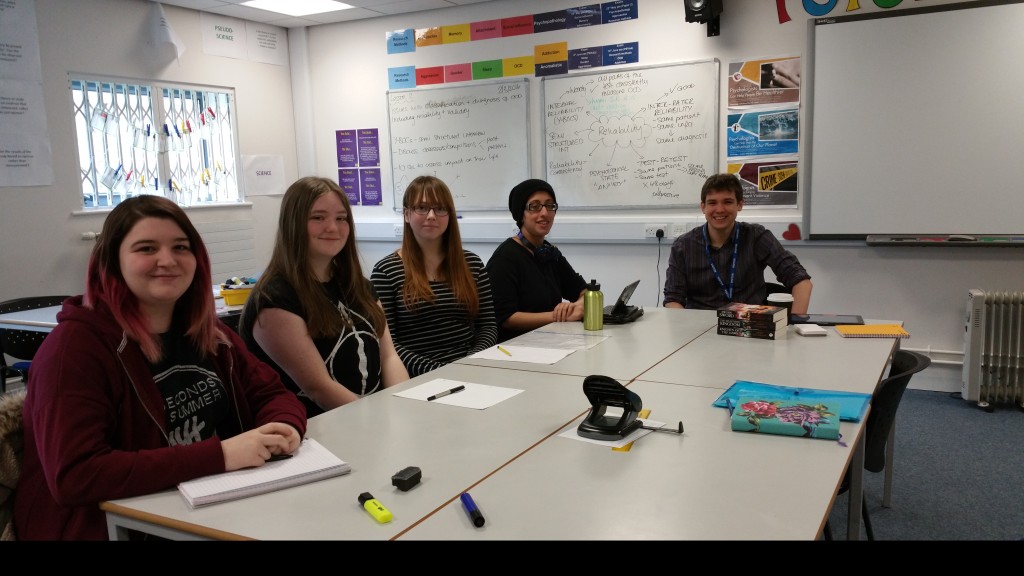
The writing workshop was a huge success, and tremendous fun too. Photo credit: Rebecca Wilson.
I was also given the honour of presenting the certificates at a lunchtime prizegiving ceremony to the winners – as chosen by staff – of the College’s annual short story competition. Needless to say it was a hectic day but also hugely enjoyable, and I’d like to thank the College librarian, Rebecca Wilson, for organising the event, as well as Mark Sheridan, Jean Westacott and the Principal, Angela Williams, for making me feel so welcome.
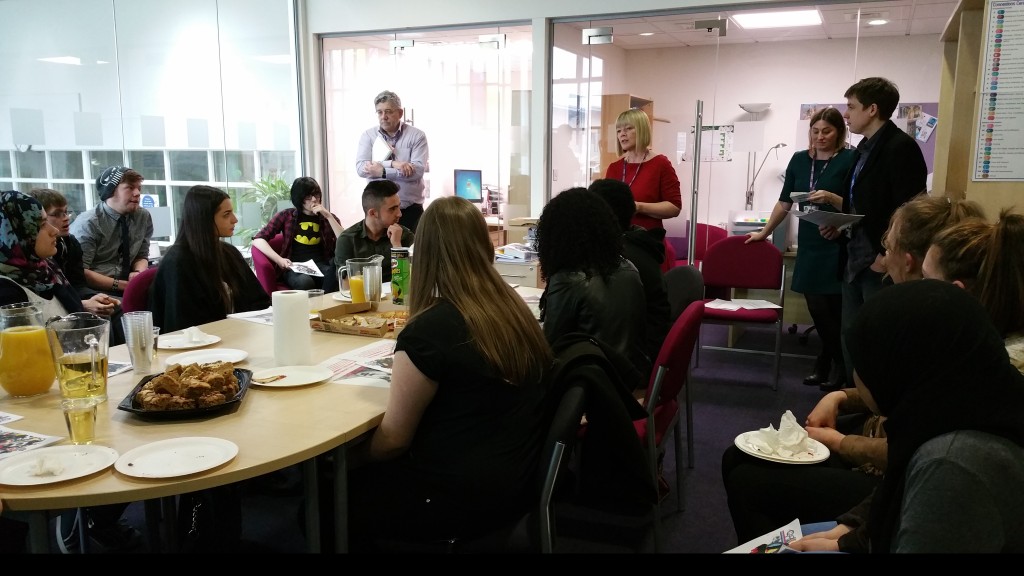
Presentation of the certificates for the winning entries in the student short story competition. Photo credit: Rebecca Wilson.
What makes a great first sentence? What do people look for in the opening of a novel? How do authors grab readers’ attentions and entice them to read on?
These were some of the questions I posed last week when I visited Marlborough College to lead a two-day creative writing workshop for a group of Year 9s as part of their summer term’s Form Festival. The ancient monuments at nearby Avebury provided the inspiration, the students provided the creativity, and the end result was the very smart-looking anthology pictured here!
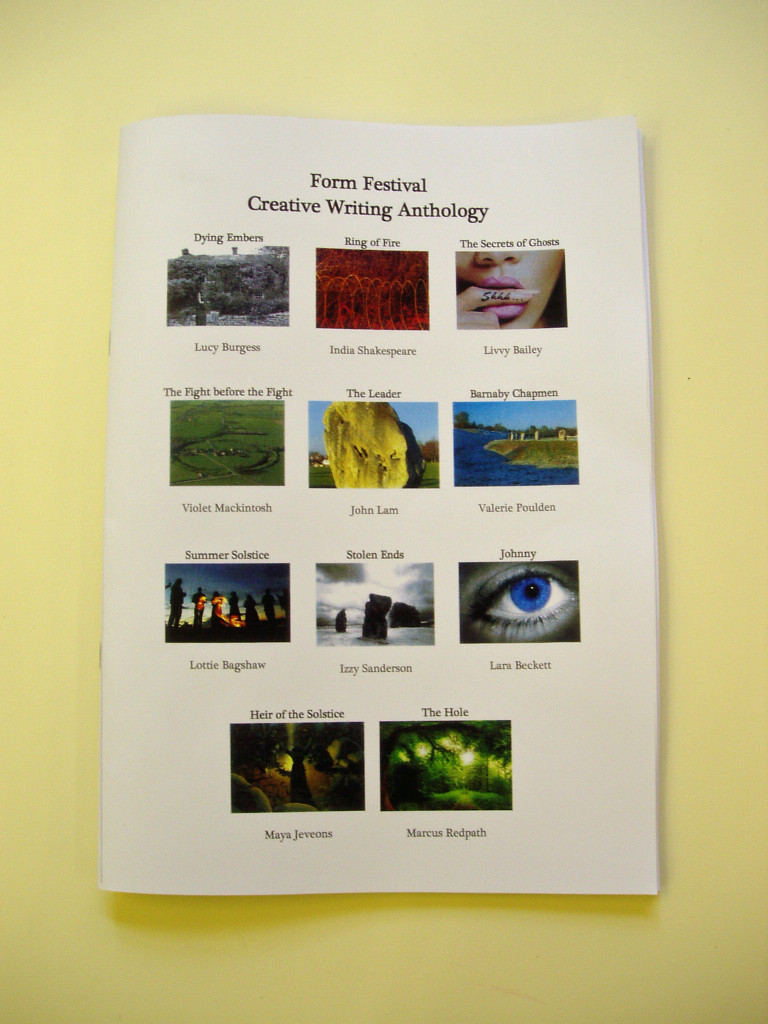
After spending a few hours exploring the ancient stones and the museums at Avebury, and trying to imagine the kinds of people who might have lived there through the ages, we returned to the College in the afternoon armed with character concepts and the seeds for possible plots.
With guidance, suggestions and feedback from me, the students then started to use the ideas they’d come up with to write a short story or the first chapter of a novel. At the end of the second day, all the pieces, complete with blurbs and front covers, were collected into the volume shown above, which was printed for the rest of the school to read and enjoy.
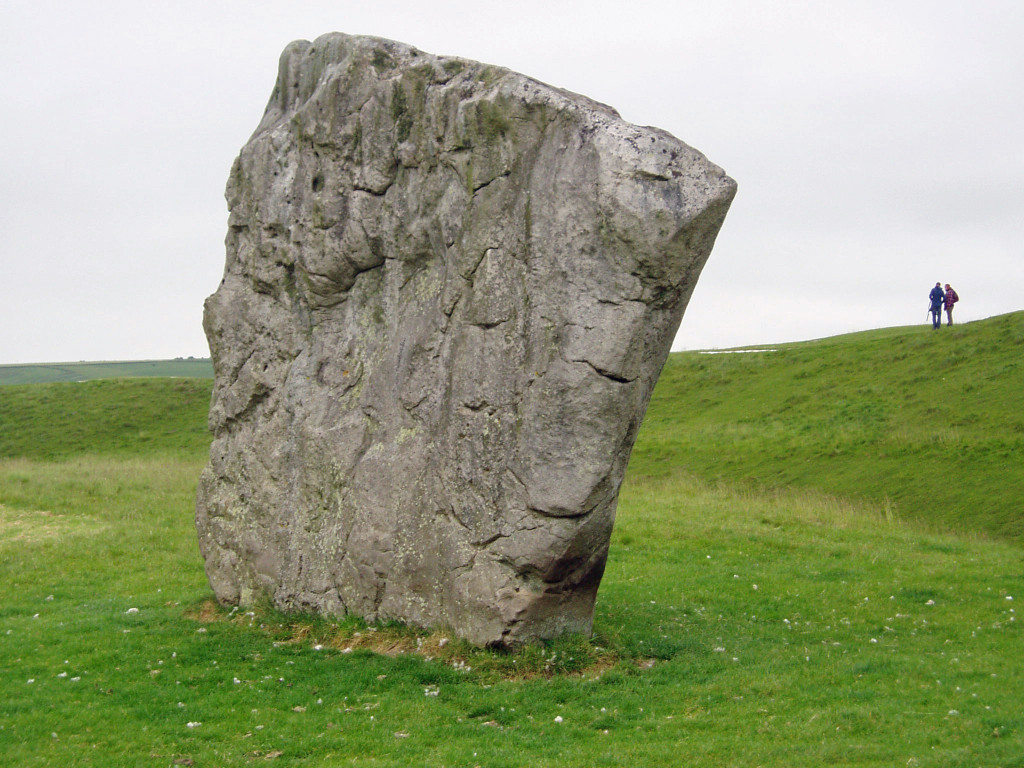
One of the two Portal Stones at Avebury, Wiltshire.
Although the main focus of the workshop was historical fiction, the students were encouraged to let their imaginations run wild and to write in whatever genre they liked, so long as their stories were connected in some way to Avebury.
What emerged from the workshop was an amazing outpouring of creativity. The tales produced took place in all periods of history, from the Neolithic to the Viking Age to the modern day; they featured supernatural forces, ancient rituals, long-forgotten battles, mysterious ruins, and a diverse range of characters including druids, archaeologists and a prehistoric proto-suffragette rebelling against the traditions of her tribe.
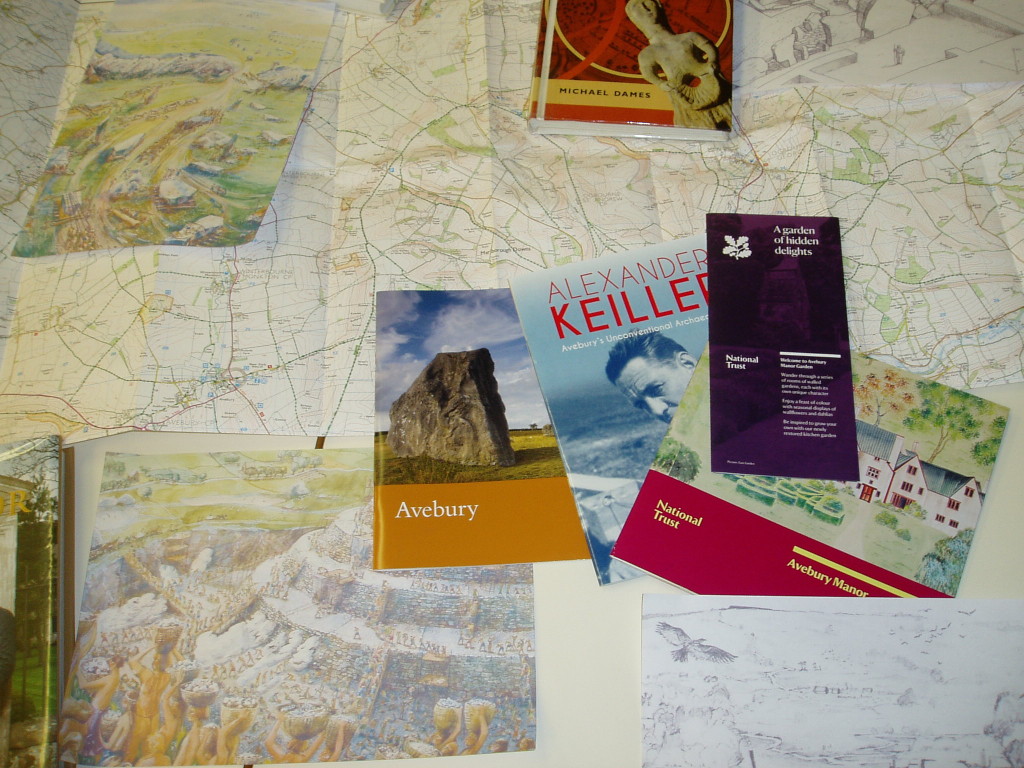
Some of the research materials used to generate ideas, including maps, artists’ renderings and (of course) books!
Thanks to everyone at Marlborough College for making me feel so welcome over the two days I was there. It was a pleasure to work with such an enthusiastic group of writers, and I wish them the best of luck for the future.
*
Earlier this year, I was invited to give a talk about the Norman Conquest and also to run a creative writing workshop at Huddersfield New College to celebrate this year’s World Book Day.
The creative writing session was based around a series of short, fun challenges designed to help free up the imagination, spark ideas and (above all) overcome the fear of the blank page – an affliction that strikes all authors from time to time.
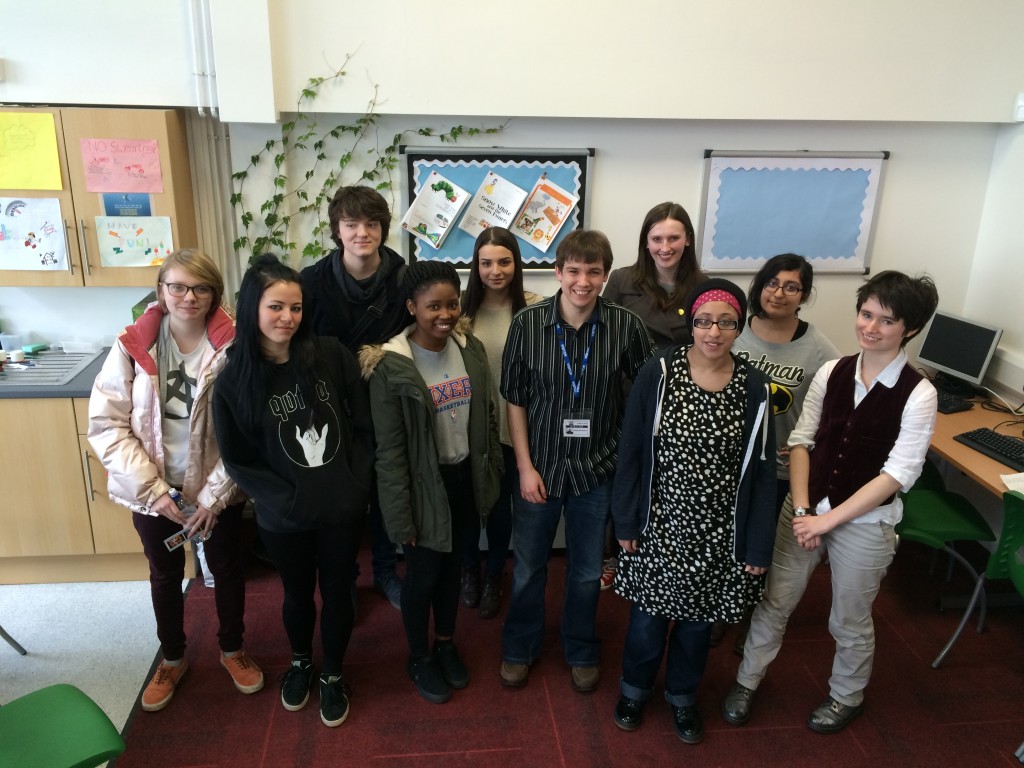
Here I am with the creative writing group at Huddersfield New College
on World Book Day 2015. Photo credit: Huddersfield New College.
I was blown away with the range and quality of writing produced in response to the various challenges I set. The workshop was enormous fun for me as well as for the students, as I think you can tell from our grins in the photo above, taken at the end of the workshop.
As at Marlborough, the welcome I received from both staff and students in Huddersfield was absolutely terrific. With any luck my being there will have inspired a few to go on to study History or to develop their writing further! I certainly felt very privileged to be in the presence of so many talented young authors, and I hope to be able to return in the not too distant future.
*
If you’d like to get in touch about organising a creative writing workshop at your school, college, library or festival, you can do so via the Contact page.

